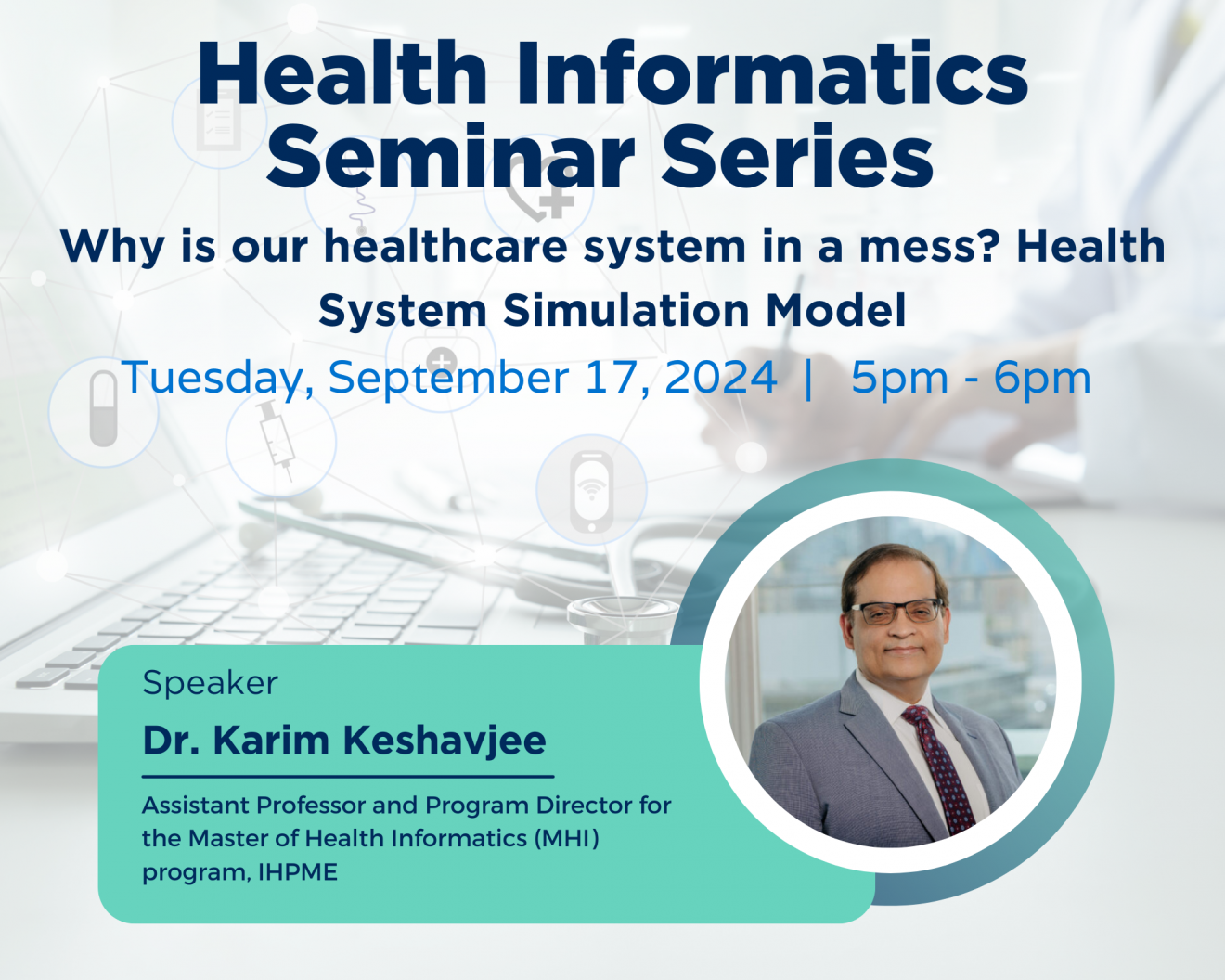
Series Overview
The joint Health Informatics seminar series is a collaboration between the Faculty of Information (iSchool) and the Institute of Health Policy, Management and Evaluation. It aims to build bridges between people from these units, who share an interest in and passion for information and communication technology (ICT) for health—reflecting the interdisciplinary nature of Health Informatics, which is at the intersection of information, technology, social sciences, and health. Speakers will discuss their cutting-edge research on a variety of topics.
Session Description
Healthcare systems around the Western world are facing severe challenges. Aging populations, expensive new technologies, burned-out clinicians, unsustainable budgets and huge amounts of data that are challenging to analyze are contributing to increased complexity and uncertainty. A variety of interventions have been attempted over the last few decades. Few work. Even fewer work effectively. Investment in healthcare is at an all-time high; Canada’s healthcare expenditure in 2023 was $344 billion. Politicians are not underspending. Clinicians and administrators are competent and capable. We are blessed with newer, more efficient technologies for earlier and better diagnoses and treatment. So, what’s wrong? Why does it feel like our healthcare system is on the brink of collapse?
This session will explore these questions using a simple health system simulation using system dynamics modelling. Where are the leverage points that can help us turn our healthcare system around? What is the impact of new treatments on the cost and prevalence of disease? What levers can we apply to turn things around?
Speaker Bio
Dr. Karim Keshavjee trained as a Family Physician. He has been a consultant to a variety of organizations across North America. He has over 25 years of progressive experience in health informatics.
Karim was the architect and implementer of several community healthcare EMR initiatives, including the COMPETE 1, 2 and 3 studies, the High Blood Pressure Management initiative, the eRourke Well-baby project, the Vascular Health and Screening Tool project and Canada’s primary care chronic disease surveillance network, CPCSSN. CPCSSN is now at 1500 physicians who donate data on over 2 million patients to a de-identified, standardized and cleaned data repository at Queen’s University.
Karim’s current research is focused on how to use artificial intelligence and machine learning in the service of diabetes prevention through the PREVENT program.
Karim is an Assistant Professor and Program Director for the Master of Health Informatics program at the University of Toronto and a Visiting Scholar at Toronto Metropolitan University.
Related Events

Sign up for IHPME Connect.
Keep up to date with IHPME’s News & Research, Events & Program, Recognition, e-newsletter.
Subscribe to Connect Newsletter
Get in Contact
Communications
Marielle Boutin
Email Address: ihpme.communications@utoronto.ca

